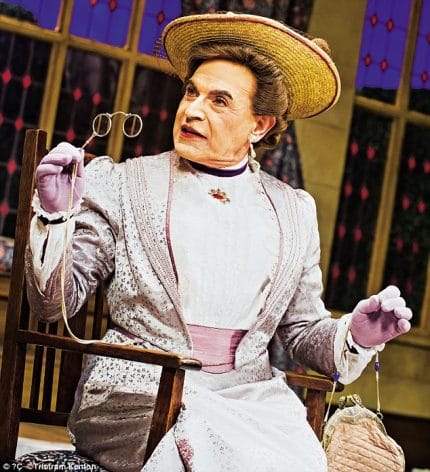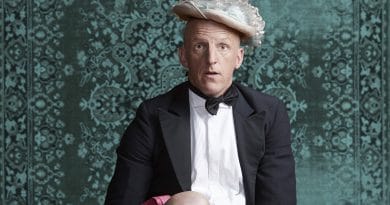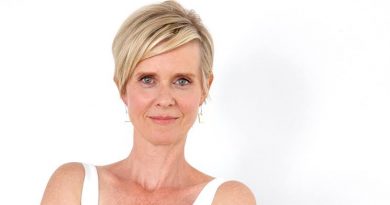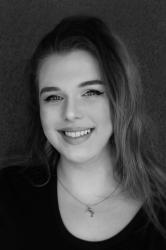Getting to know David Suchet
For over 25 years, David Suchet delighted viewers around the world in his depiction of the iconic Agatha Christie character Poirot.

He has also seen much success in screen and stage, having won an Emmy, and received nominations for multiple Olivier Awards, BAFTAs, and a Tony Award. On the stage, David has been seen in iconic roles such as Lady Bracknell, Cardinal Benelli, and Freud, and has performed the work of literary greats such as Shakespeare, Albee, and Wilde.
David is about to commence an Australia-wide tour, a sit down “conversation with” style show, where he discusses his life as an actor, his inspirations, challenges, and of course, Hercule Poirot. He commences this afternoon in Perth, and moves through Canberra, Sydney, Melbourne, the Gold Coast, Brisbane, Newcastle and Adelaide over the next month. I managed to have a chat with David about his experiences, and what audiences can expect from the upcoming tour for Poirot and More: A Retrospective.
Are you enjoying your time in Australia?
Well, I’m not just saying this. I’m a huge fan of your wonderful country and I’m excited to be back. I had the most fabulous theatre tour in 2014. And when this opportunity came up again, I grabbed it. I’m very pleased to be here at a time where your country needs all the support and good will because of the tragedy of the fires. I think in times of hardship and tragedy, entertainers have always tried to be there, and to go back to all the war years with the entertainers coming out to the troops… it’s not quite the same, but we like to think the entertainment industry is not just there for itself, it’s there to bring people out of whatever dark places they may be, and have a really nice night and forget about everything else.
Outside of TV, you have an impressively large list of theatrical credits. Do you have a role that stands out as a particular favourite?
I do have a favourite, he was a dark and wonderful character named Joe Keller in a play by Arthur Miller, All My Sons. That was a theatre role that really touched me and took me to places, took the audience to places, that I will certainly remember for a long time to come. It’s a fantastic play, I think it’s one of the greatest plays of the 20th century.

And you just recently played Lady Bracknell in The Importance of Being Earnest?
I did, that remains right up there with my favourites. It was a great treat to be offered Lady Bracknell. I turned it down immediately, because I thought “no way could I ever become Lady Bracknell in Oscar Wilde’s definitive comedy.” I was persuaded by my producer to change my mind. I had a great time, such fun, and not playing her as a camp, pantomime, drag artist in any way. I tried to do her and Oscar Wilde full justice. In my 51 years as an actor, I still don’t think that my comedic potential has been fully realised. I had the most wonderful time in Arthur Miller’s The Price just a few months ago on the West End, and I had this fantastic character, an 89 year old Jewish furniture salesman from Lithuania, and he was hilarious. I had such a ball on the stage, being able to flex those comedy muscles. Because in the early years, when I was in reparatory theatre, when I was a young lad in my early 20s, I did so much comedy, and I really enjoy it. There is an art to it, and it’s all to do with one word – timing. The famous statement about comedy is that it’s a very serious business.
How was the experience of playing Hercule Poirot?
It’s a great privilege because he is such a character. People will know me and remember me way after I’ve gone for being this man, because you can have 750,000,000 watching you around the world, that’s how you’re going to be remembered. Whatever I can do in the theatre, the most we can ever hit is 1,500 a night. To get to 750,000,000 people you’d have to perform one play for about 200 years! [laughs] What I’m terrifically grateful for is that that character, Agatha Christie’s character, has been so well received. I’m not the first to have played it, and I won’t be the last obviously, and he will continue. But my interpretation seems to have captured the imagination of her readership in this moment in time, to which I am enormously grateful. And in a medium that is in everybody’s living room, even in places you wouldn’t expect. I remember filming in Africa and going to local townships into local mud huts where they had a television working off a generator outside. Television is the big communicative medium in everybody’s homes. I know where he’s been played, even to this day, despite not having played him for 7 years. I still get letters by the score being sent to me, forwarded by my agents, from all different regions where the program is still being shown now all over the world. It’s very humbling.

Do you have anything in common with him?
I’m forced to admit there is quite a lot of me that is quite like him. I’ve always liked to be orderly. I don’t know about you, but if I go into my house and the photographs on the wall are crooked, I will straighten them. I must put up my hand and defend myself and say I am not clinically OCD like he may be considered today, I do not have to have my boiled eggs exactly the same size before I will eat them, et cetera. I don’t dress like him, I don’t think like him actually. But I do like an order and methodical sort, but he goes to an extreme in that way. And I hope I’m not quite as vain!
Is there anything that you’ve learned from your time playing Poirot?
I think he’s taught me quite a lot actually. He’s taught me how to be more patient and tolerant, which always becomes harder as you grow older. He’s definitely taught me to be a better listener. There’s a great description in one of her books where Poirot will fix on the person to whom he is speaking, and the way he listens is so actively intensive, he says at one point in the books “I listen to what you are saying, madam, but I hear what you mean.” Isn’t that a lovely thing?

The first Poirot story came out exactly 100 years ago – why do you think the character is still so popular?
I think, to be fair to Agatha Christie, it’s not just because they’re great crime stories. We’ve had many great crime writers, and she is a great crime writer, but she creates characters like no other crime writer. Miss Marple is a genius of a creation, and similarly with Hercule Poirot. And I think what it is with Poirot, is with all his vanity, with all his primping, his ‘modesty’, he’s a great moral compass. I get a lot of people watching Poirot that have great many problems, and they seem to feel better watching and having watched Poirot. And I think because he… you’re in the presence of someone who makes you feel safe, that all will be well with the world while he is there and with you. And I’ve had that in letters from people who have been sick, in ill health, sacked from a job, going through a divorce… and they put on a Poirot and it makes them feel better. All I ever tried to do was to serve Agatha Christie and be the Poirot that she wrote, so that the millions, billions of readers across the world, when they read her stories, could see the character that she wrote. One of the things about the character that struck me most forcibly was that he’s a bachelor that wished he had married, so there’s something lonely about him, which is quite endearing. He’s also very kind to those ‘below stairs,’ the servants, the side of the population where the middle and upper classes are more aloof. He’s a kind man, and he loves people. He’s interested in people. He can be ruthless, but he’s a nice person, and I felt that when I was reading him, and I never, ever, let that change.
What can audiences expect from your show?
It’s in two halves, I’m so excited about this because it’s something I’ve never done before. I’m with the wonderful Jane Hutcheon who will be on stage with me, asking me questions in an interview-type situation in Act 1. And in Act 2, I actually go into a workshop situation with the audience, Jane will leave the space, and I’ll talk about Shakespeare and my 13 years with the Royal Shakespeare Theatre Company. I’ll talk about voice, language, verse structure, and then do some speeches from Shakespeare. So I will be earning my bread as an actor as well! Put my money where my mouth is, I can’t just talk about it and not do it, I hope it do it well! [laughs]
David Suchet – Poirot and More: A Retrospective
Perth – Sat 18 Jan
Canberra – Mon 20th Jan and Tues 21st Jan
Sydney – Thurs 23 Jan and Fri 7th Feb
Melbourne – Sat 25th Jan and Thurs 13 Feb
Gold Coast – Wed 29 Feb
Brisbane – Fri 21 Jan and Sat 1 Feb
Newcastle – Sat 8 Feb
Adelaide – Tues 11 Feb and Wed 12 Feb




